Waste not: The dirty dangers facing China’s trash recyclers
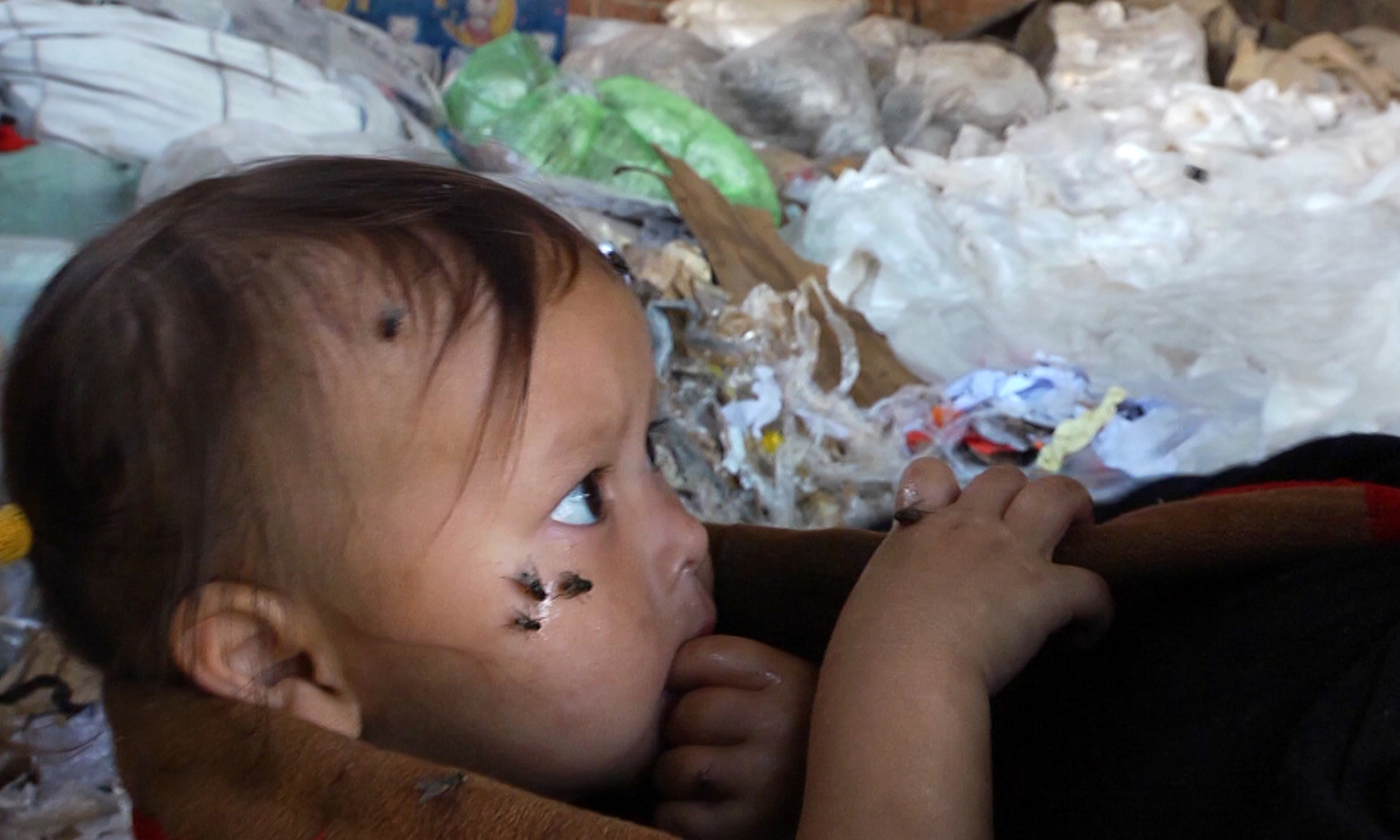
Flies cover the face of a worker’s child on the back of a worker sorting plastic waste in a northern Chinese village. The processing of imported waste and scrap metal has been a significant industry in China’s rural towns for many years. Besides developing local economy, this industry also brings about fatal environmental pollution and threatens the local people’s health. Photos: Wang Jiuliang
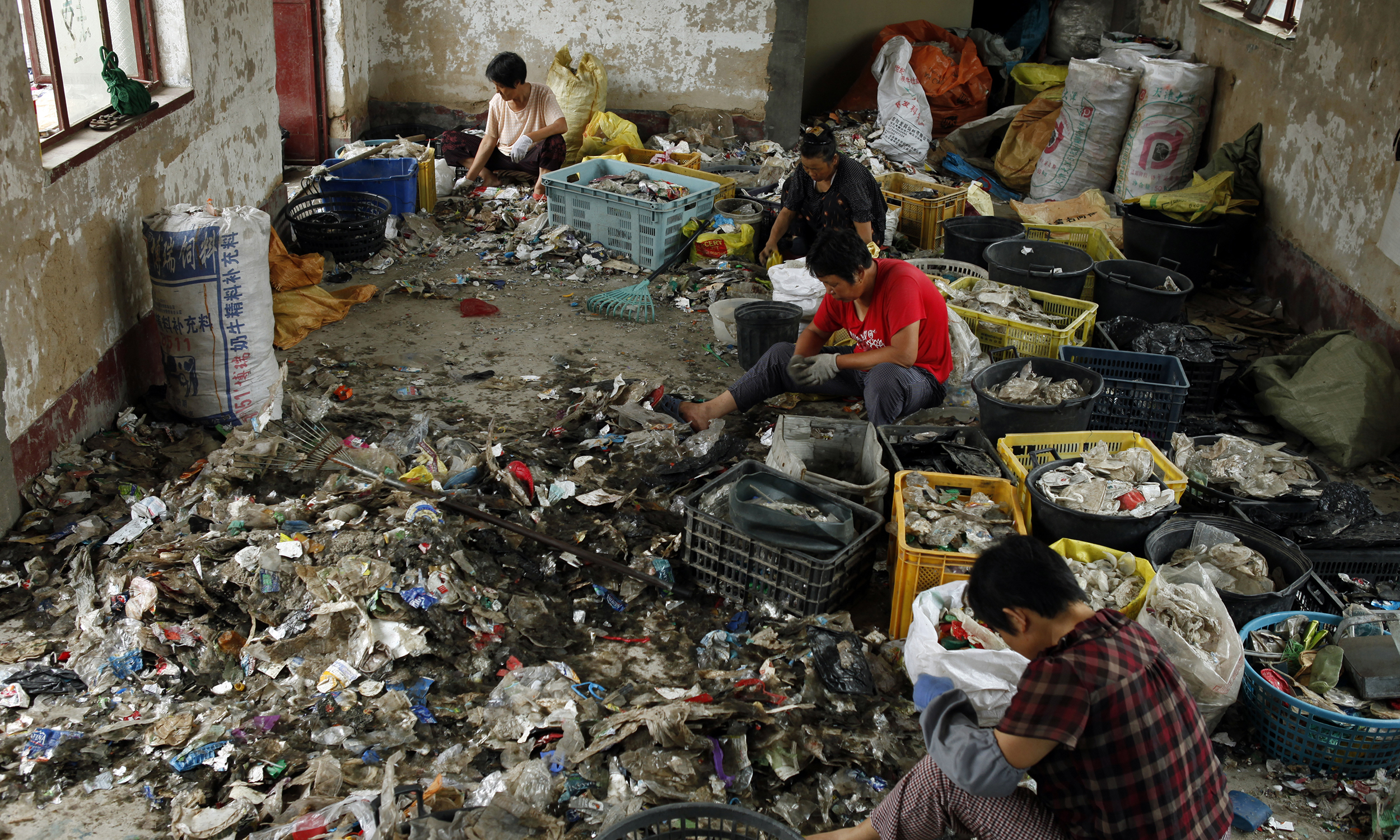
Workers sort through recycled trash in a village in North China. It's estimated that China has around 30 towns dedicated to processing plastic waste, each with hundreds or even thousands of workshops.
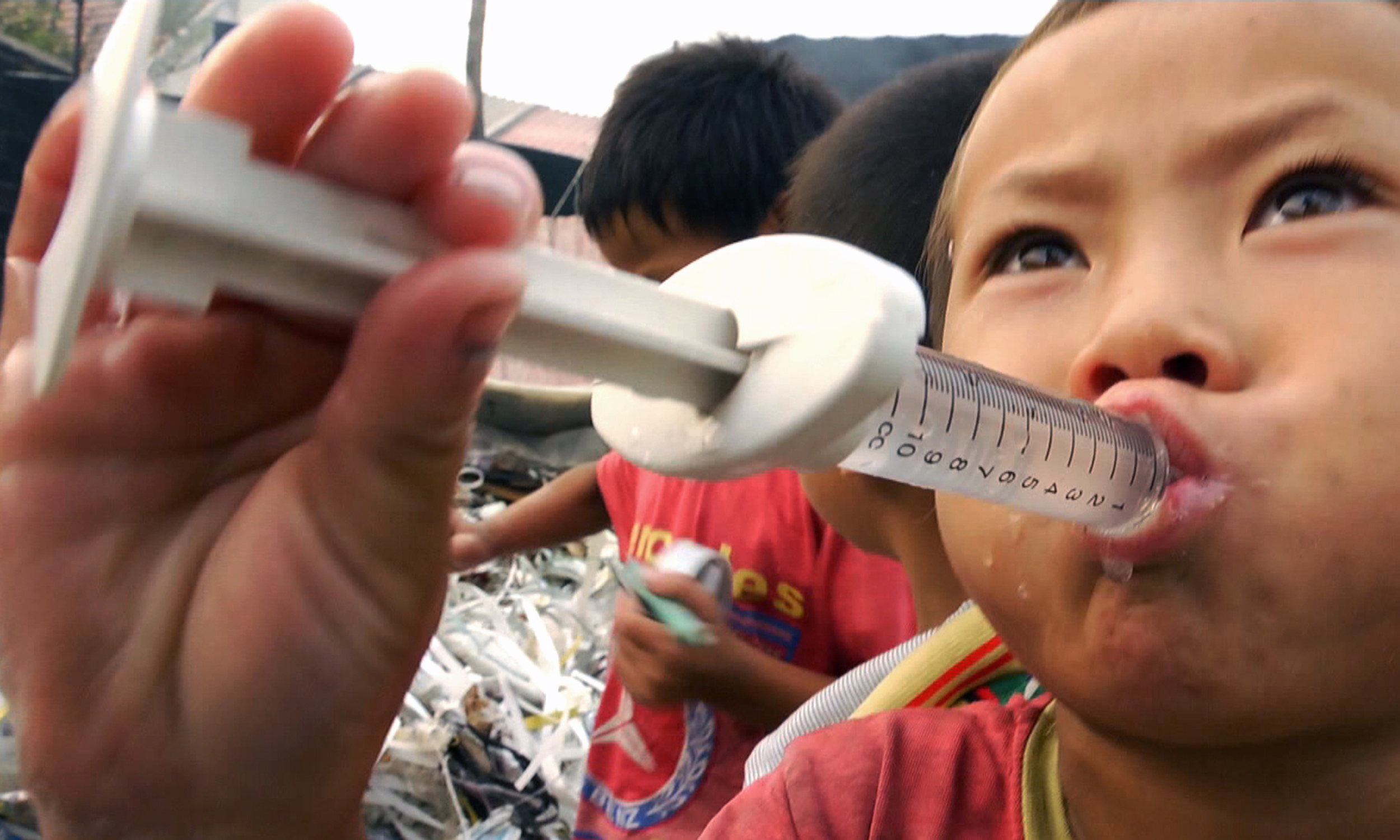
The child of a recycler drinks from of a syringe he found. Medical waste, despite being prohibited from import into China, often ends up in these workshops. Syringes become children’s toys, and the workers even wear used but washed medical gloves for work.

A woman checks a crying child’s foot after the kid stepped on something sharp in the piles of garbage. There are often sharp, poisonous or otherwise harmful objects hidden in the trash that threaten injury to the workers and their children.

A mother feeds her baby in a workshop. This woman, who survives on a daily salary of 40 yuan ($6.42), was forced to give birth in a vegetable field outside the workshop because she could not afford to visit a hospital.
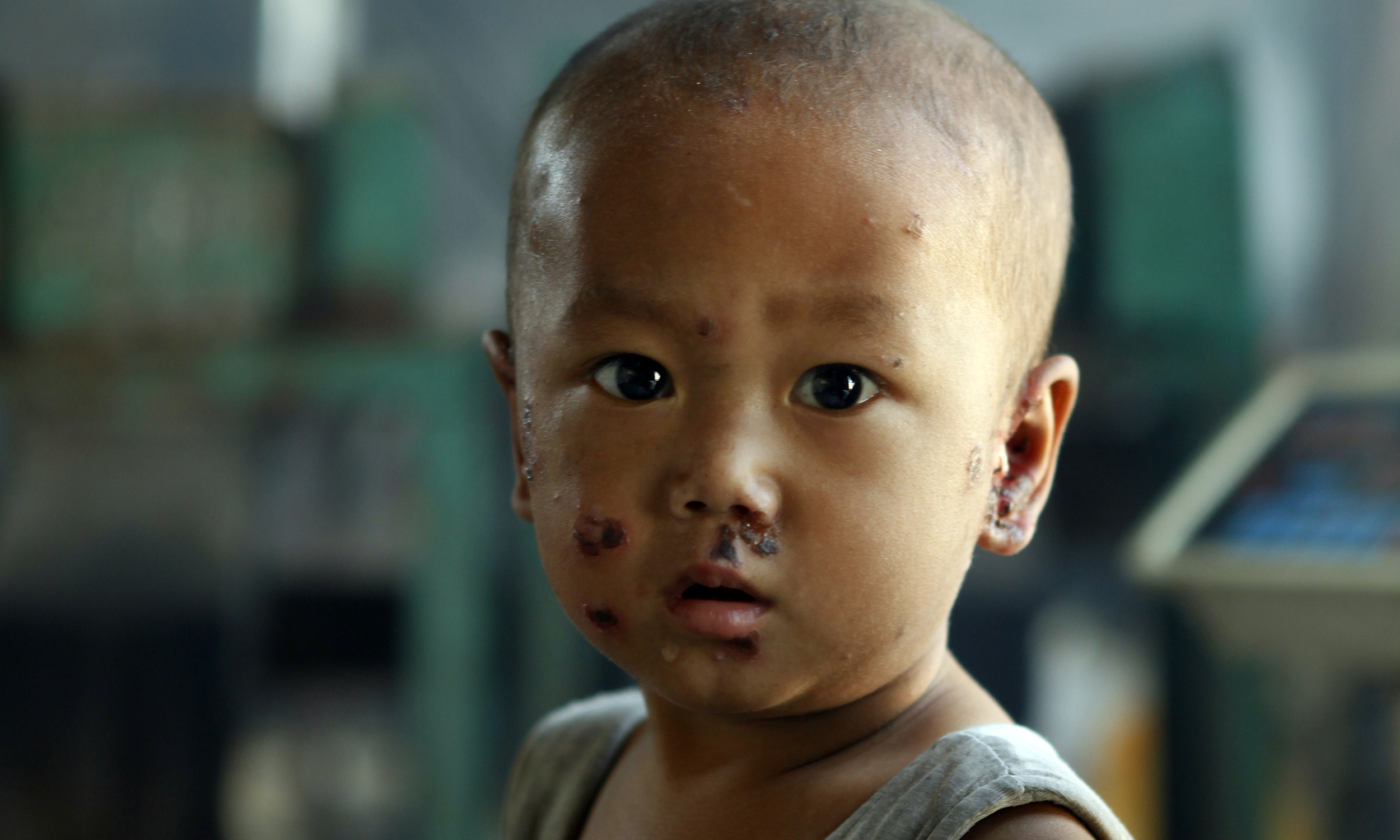
A child shows clear symptoms of impetigo, an infectious skin disease. Cases are not uncommon in these plastic recycling workshops, where workers are exposed to festering garbage and toxic smoke from burning plastic on a daily basis. In these villages, cancer rates are well above the national average.

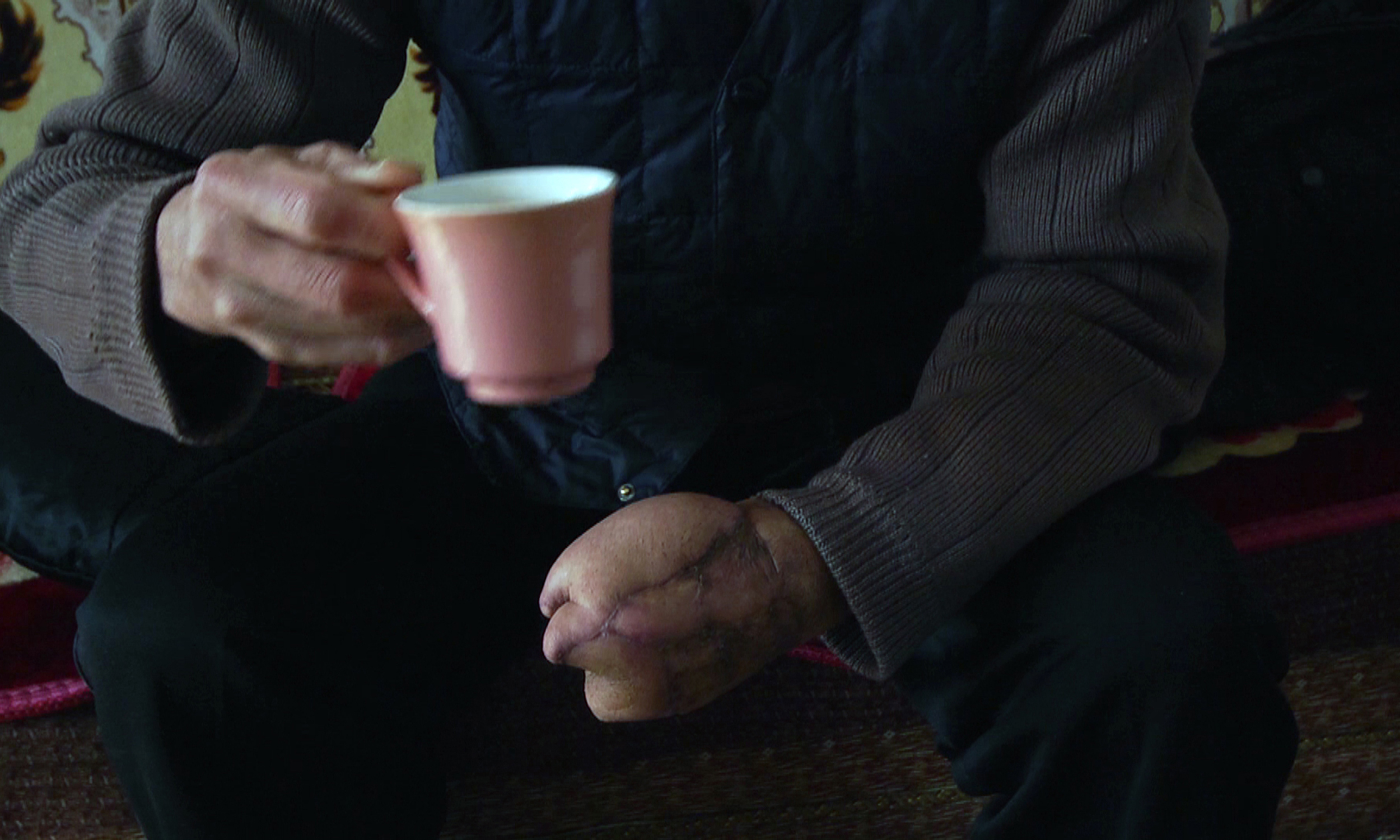
A sorter with over 20-year experiences lost his left hand at work after he fainted from formaldehyde fumes. “I wish I could buy my hand back with all the money I earned in the past 20 years, but this will not happen,” the worker said.

Leftover waste is burned.
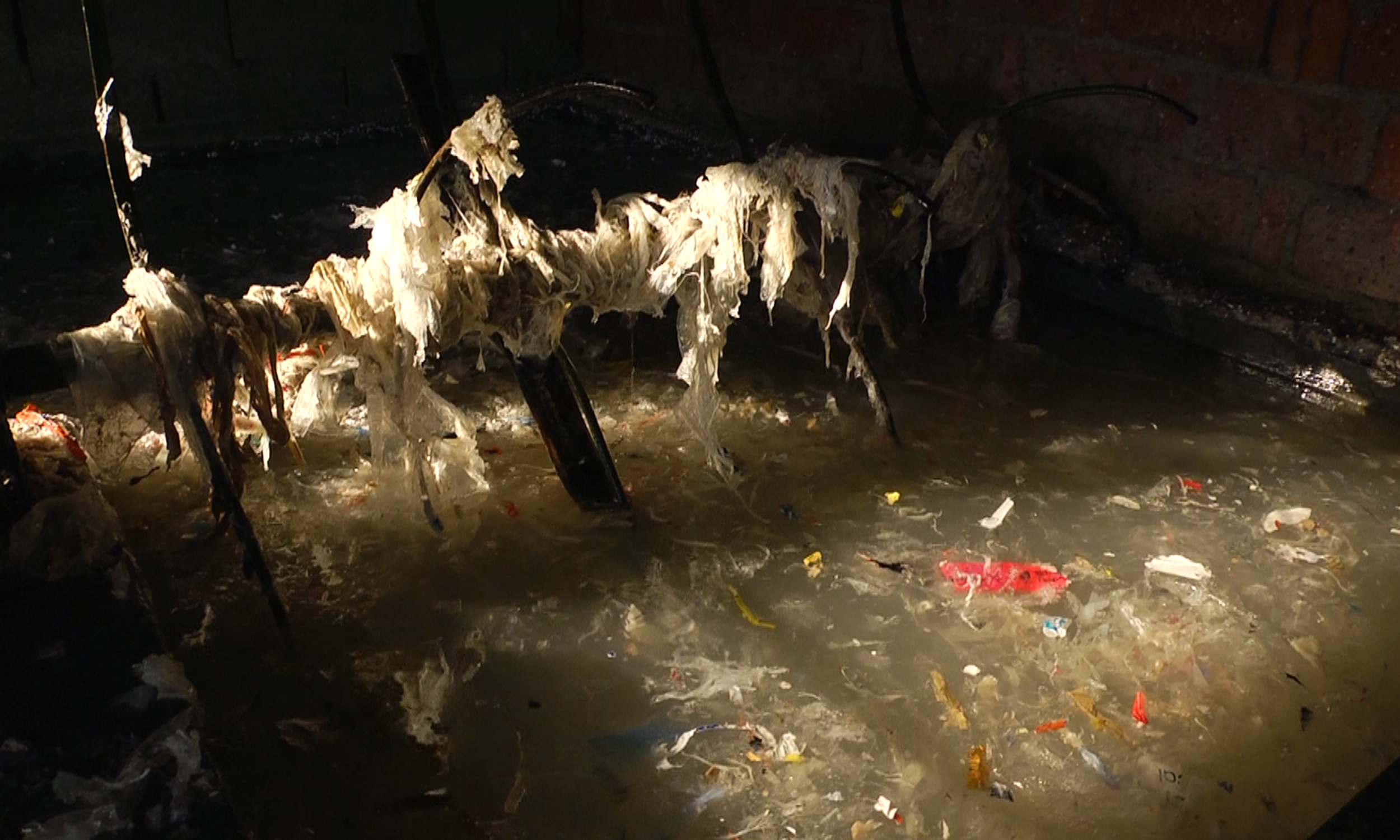
The cleaning of plastic waste requires large amounts of water, which is left contaminated after the cleaning process. Local authorities charge these workshops for water use and sewage disposal. However, most towns with plastic waste workshops either do not have a sewer system or it does not work properly.

A pond has turned pink due to pollution from nearby plastic waste workshops in Hebei Province. Although the local government had a sewage disposal plant built, pollutants from almost all of the workshops are dumped directly into surrounding rivers and lakes.
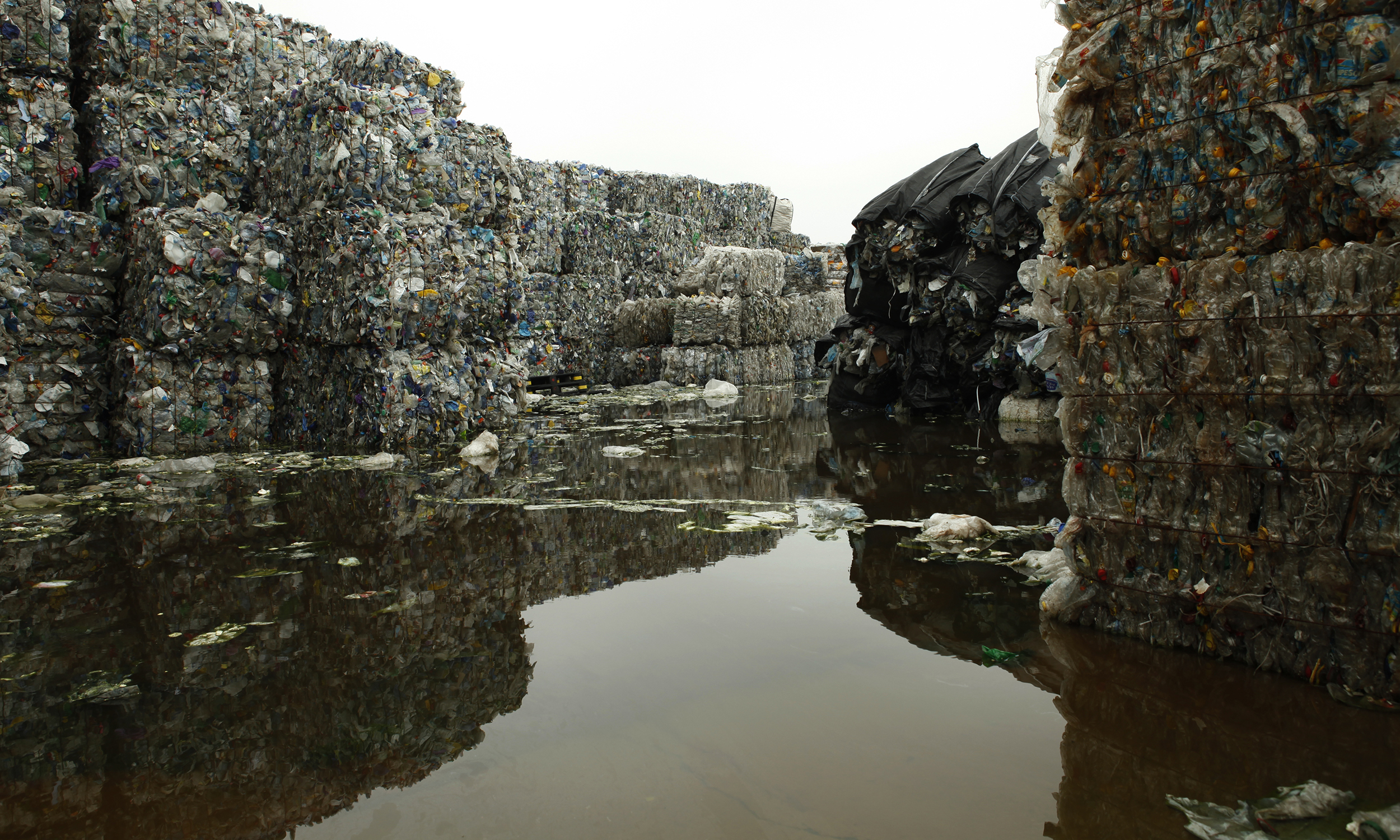
Piles of imported plastic waste are stacked near a port in Tianjin.

Workers assemble toy cars made from recycled plastic waste in a factory in Dongguan, Guangdong Province. The products are exported to the UK, Japan, Italy and the US. That is to say, the finished goods are exported to developed countries which are often the source of the waste.

